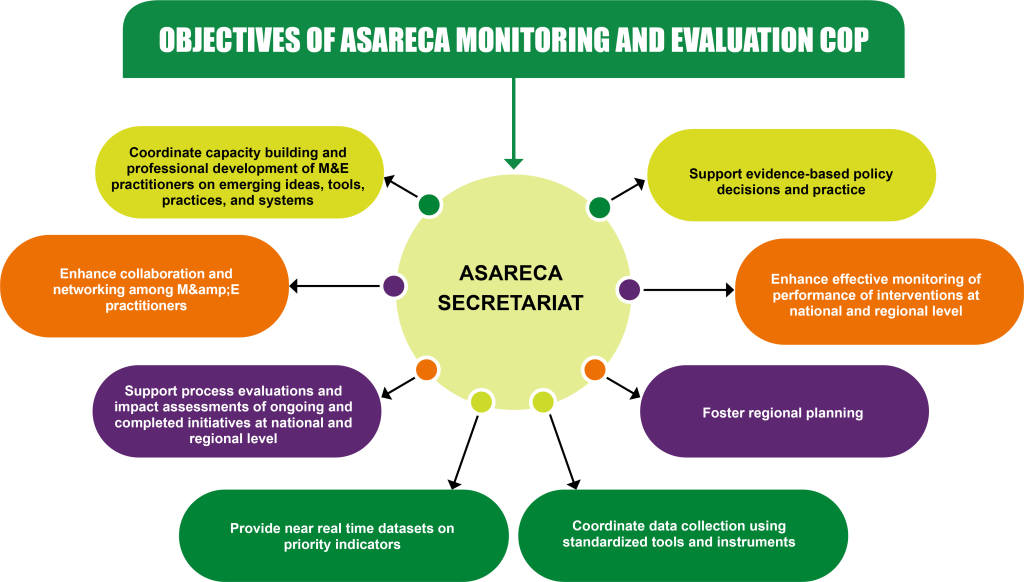Goal
The ASARECA Climate Smart Agriculture Alliance (ACSAA) is a multistakeholder platform established in 2021 with the goal of improving farmer resilience & livelihoods in the face of climate change and variability. To achieve this goal, ACSAA will disseminate and promote the utilization of proven climate smart technologies and practices in each country.
Mission
To enhance coordination of CSA programs within the ECA sub-region

Background and Rationale of the ACSAA
Climate change continues to take a heavy toll on the agriculture sector in ASARECA member countries, putting years of economic progress at risk. The most affected are millions of farmers, especially smallholder rural farmers who bear the brunt of climate change including uneven rainfall distribution, extremes of temperatures, floods, and soil erosion. The pathway to ensuring a climate-resilient agricultural sector must, therefore, be cemented with sound climate agricultural policies and interventions. Climate-Smart Agriculture is emerging as a promising pathway to address challenges imposed by the changing climate and ensure that agriculture becomes resilient. Ultimately, increasing food production, improving resilience, and reducing emissions from the agriculture sector will depend on how fast ASARECA member countries prioritize policy actions that address the challenges of the changing climate.
Membership
Currently, this CoP has over 1000 members drawn from a wide range of institutions as shown below.

Membership fees and Funding
Currently membership to ACSAA is free to all. CSA activities of ACSAA are currently financed by the European Union (EU) and the International Fund for Agricultural Development (IFAD) through the Comprehensive Africa Agriculture Development Programme CAADP ex-pillar IV (CAADP-XP4) project as part of the grant awarded to ASARECA, AFAAS, CCARDESA, FARA and CORAF. We however welcome contributions from development partners and well-wishers interested in strengthening African institutions to use local innovations to mitigate the negative effects of climate change and improve smallholder farmer livelihoods.
